Drinking filtered water for a healthy brain
So, we know that drinking enough filtered water is good for your health. We know it’s good for your body, improves digestion and is great for your skin, amongst other things. But did you know that it’s also super important for your brain health? Yes, filtered water is good for your brain!
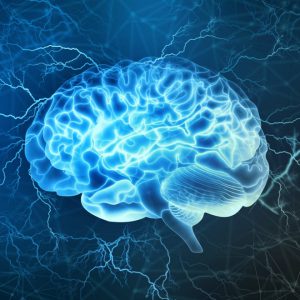 Water and Brain Energy
Water and Brain Energy
The brain is made up of about 75-80% water. And the way your brain functions depends on having plenty of water and keeping it hydrated.
“Water gives the brain the electrical energy for all brain functions, including thought and memory processes,” says Dr Corinne Allen, founder of the Advanced Learning and Development Institute.
“And brain cells need two times more energy than the other cells in the body.”
Water is the key. And filtered water is even better for many, many reasons!
According to recent studies, when your brain is functioning on a full reserve of water, you’ll think faster, be more focused and experience greater clarity and creativity.
Drinking enough water may even improve exam results
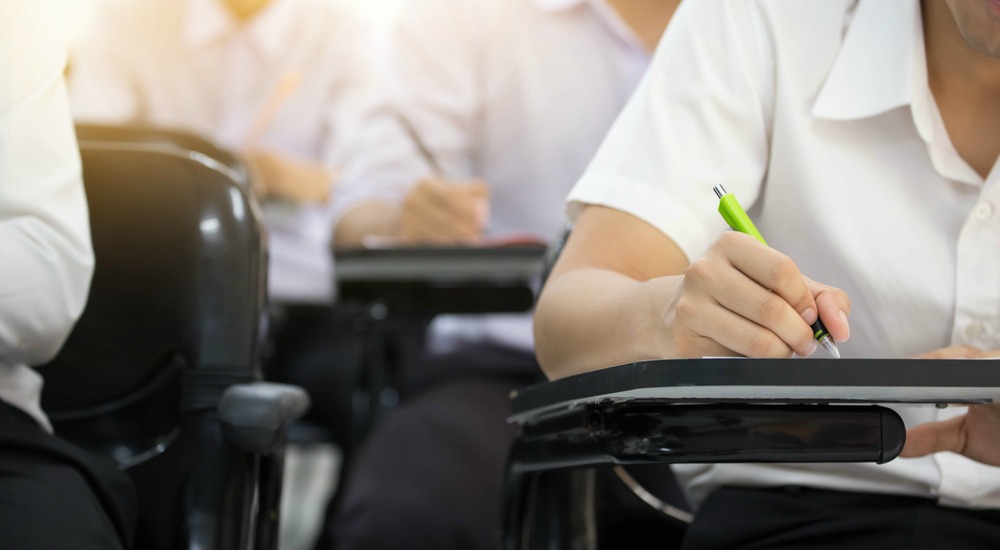
Dr Chris Pawson from the University of East London says, “Consuming water may have a physiological effect on thinking functions that lead to improved exam performance.”
According to a recent UK study, researchers found that university students with water scored 5% higher in their exam results than those without water.
Water consumption may also help with anxiety, which is known to have a negative effect on exam performance, too. (Source – BBC)
There is even some research that suggests that drinking enough water can help prevent attention deficit disorder in children and adults.
But what happens if you don’t drink enough water?
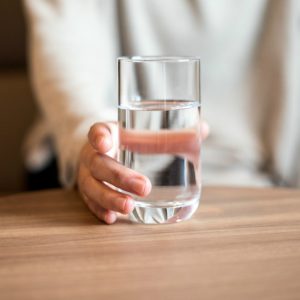 Throughout the day, your body loses water. According to the Mayo clinic, the average adult loses more than 2.4 litres of water a day. This is through sweating, breathing and eliminating wastes. If you do some exercise or it’s a hot day, you’ll lose even more!
Throughout the day, your body loses water. According to the Mayo clinic, the average adult loses more than 2.4 litres of water a day. This is through sweating, breathing and eliminating wastes. If you do some exercise or it’s a hot day, you’ll lose even more!
Not drinking enough water may lead to mild dehydration. And even mild dehydration can cause problems like bad moods, increased fatigue, brain fog and headaches.
Recent studies show that 1% dehydration will cause a 5% decrease in cognitive function
One study concluded that even mild dehydration caused problems with visual and working memory in healthy young women. These effects were reversed by drinking 2.5 litres of water a day.
At King’s College, London, another research study tested the effects of dehydration on the brain in adolescents. The study consisted of making healthy adolescents exercise, some without water. They then did MRIs and gave them problem solving tests. The results showed that the hydrated teens found the problems easier than the dehydrated teens who also suffered from ‘brain fog’.
According to two studies conducted at the University of Connecticut, mild dehydration can alter a person’s mood, energy level and the ability to think clearly. These tests showed it didn’t matter if the person walked for 40 mins on a treadmill or was just sitting, the effect was the same and the result was mild dehydration, which is a loss of 1.5 percent of the normal water volume in the body.
Mild dehydration – the difference between men and women
Another study compared the effects of dehydration in men and women. In young women, mild dehydration caused headaches, fatigue and difficulty concentrating but there was no substantial reduction in their cognitive abilities. (The Journal of Nutrition)
In young men, mild dehydration caused difficulty with mental tasks, especially in areas of vigilance and working memory. The men also experienced fatigue, tension and anxiety when mildly dehydrated. According to the study’ the changes in mood and symptoms were greater in women than men. (British Journal of Nutrition)
What happens to the brain without water?
Mild dehydration often occurs because the feeling of thirst doesn’t appear until you are already 1-2% dehydrated and by then dehydration has started and is beginning to impact how the mind and body perform.
The lack of water and the mild dehydration mean that the body’s toxin removal system slows down, increasing inflammation. And the brain doesn’t have any way to store water to keep it topped up. So, drinking filtered water often throughout the day is the best way to keep it hydrated.
The effect of long-term dehydration
Mild dehydration isn’t good but continued dehydration could lead to something more serious. And some believe that long-term prolonged chronic dehydration can cause the brain to age prematurely.
There’s even some research from Harvard Medical School that suggests your brain will shrink in size and mass if you are dehydrated. Just like plant leaves without water, the cells in your brain begin to dry out and contract when deprived of fluid.
 Elderly and children most at risk
Elderly and children most at risk
Look after your grandpa and your little ones. Another joint study with the University of East Anglia and University of Canberra found that one in five older people living in care homes are dehydrated. Why? Often it’s for a number of reasons which include reduced sensation of thirst, reduced renal function, hormonal responses to dehydration, dementia, diabetes, medications and incontinence prompting limited water intake.
Dr Allen, founder of the Advanced Learning and Development Institute, also found that people with autism, Aspergers, ADHD, anxiety and depression often drink hardly any water. This lack of water only enhances brain dysfunction.
The mental symptoms of dehydration
-
- Brain fog
- Afternoon fatigue
- Focus issues
- Depression
- Anger
- Emotional instability
- Exhaustion
- Headaches
- Sleep issues
- Stress
- Lack of mental clarity
According to Lawrence E. Armstrong, one of the lead scientists and a professor of physiology at the University of Connecticut,
“Dehydration affects all people and staying properly hydrated is just as important for those who work all day at a computer as it is for marathon runners, who can lose up to 8% of their body weight when they compete.”
The benefits of drinking enough water for your brain
With all the recent research into dehydration and its effects on your brain, the message is simple. Drink filtered water and lots of it because it…

- Supports healthy brain cells
- Improves concentration
- Helps balance mood and emotions
- Improves the quality of sleep
- Helps maintain memory function
- Eliminates toxins and free radicals from the blood
- Improves blood flow and oxygen to the brain
Tips to keep up your water intake and stay hydrated

- Keep a reusable water bottle of filtered water with you all day or a glass of filtered water by your desk and regularly fill it from your inline water filter
- Invest in a home water filtration system for fresh filtered water on tap 24 hours a day
- Use an app as a reminder
- Try some fruit infusion recipes
- Watch for dehydration signs by checking urine colour and whether you are feeling thirsty
Stay healthy and hydrated this summer. It will keep your brain healthy too!
Five cooking hacks with filtered water
How to make the most of your hot and cold water filter system
According to ancient Chinese medicine drinking warm filtered water is good for your health. It’s all about balance and making it easier for your body to absorb.
An instant hot water filter system will save you time and is great for your hot water and lemon drink first thing in the morning. It’s also a quick an easy option for that perfect cup of tea or coffee.
But we’ve discovered some other great uses for hot or warm filtered water that go well beyond making the perfect cuppa.
Five great cooking hacks with hot or warm filtered water
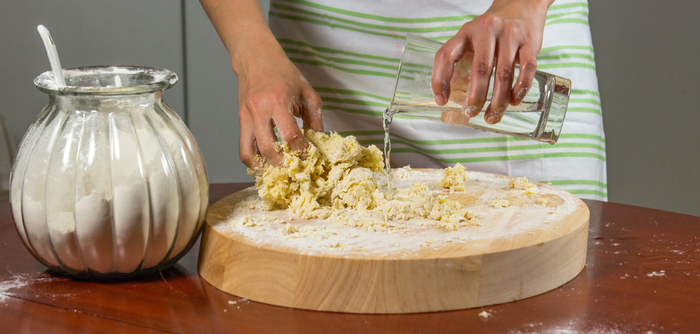
1. Make the perfect bread
Making your own bread at home can be tricky for some. The correct water temperature is really important as if the filtered water is too hot it will kill the yeast. But use tepid filtered water and it will activate the yeast nicely.
A useful guide is two parts cold filtered water and one part boiling.
A quicker way is to set a tepid temperature with the Duo water filter system and add the yeast to activate it for the bread making process. Of course use filtered water and the bread will taste all that better because there’s no nasty chlorine after taste!
Want to have a go at baking your own bread? Check out Jamie Oliver’s simple bread recipe here
2. Make the best quinoa
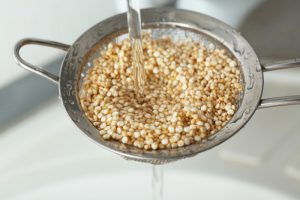
Quinoa is an ancient whole grain (similar to rice). It’s actually a seed rather than a grain and is a great gluten and cholesterol-free whole food.
It has very high protein content with nine essential amino acids and is a good alternative to rice. The added bonus is that it only takes 10-15 minutes to cook.
Quinoa is super simple to make.
Just rinse the quinoa in a fine strainer with cold filtered water straight from the tap via your inline water filter system, (just like you would do with rice). Then add one and a half cups of instant hot filtered water to a pan. Bring to the boil and simmer for 15 minutes so all the quinoa has absorbed the filtered water. Add a pinch of salt to taste.
This makes a great base and then it’s up to you to add what you want for a healthy salad – seasonal veggies, olive oil, herbs, lemon, nuts or olives are just a few ideas.
3. A cheat’s guide to cooking pasta quicker
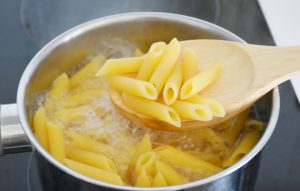
No more waiting around for the water to boil before adding your pasta.
Just add instant hot filtered water to your pan from your duo hot and cold water filter system. Add pasta and count the minutes.
Rinse under hot filtered water and drain. Then mix with your favourite pasta sauce, top with parmesan and dinner is ready.
4. Make great tasting couscous
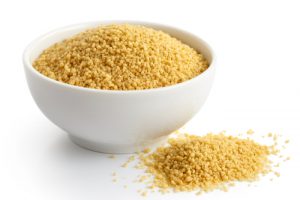
Couscous is a staple in the Middle East and can be used to make some great healthy salads. It’s super easy to prepare too. Just put 2/3 cup of couscous into a heatproof bowl and add one cup of boiling filtered water. Stir, cover and leave for five minutes.
Next separate the grains with a fork and add olive oil and season to taste. This makes a great base for a salad or add cumin or coriander for that something extra!
5. Make your own natural jelly recipe – the kids will LOVE it!
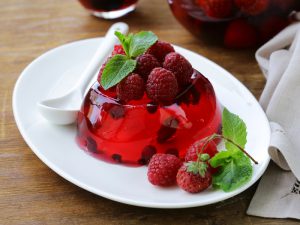
No need to buy jelly from the shop any more. Why not make your own with in season fruit and filtered water? It’s simple, healthy and tastes great!
The first step is to stew your own fruit. Just take your pick of what is in season. Put it through the blender and strain.
Add the fruit to a pan with three to four teaspoons of food grade gelling gelatin and add one and a half cups of filtered water. Boil it until the fruit is soft and gelatin is dissolved. Blend and strain. Then add 500 ml of cold filtered water and pour into moulds. Add extra fruit if you like too and refrigerate.
Full recipe from Gelatin Health
Of course all these recipes can be made with cold filtered water straight from your inline water filter but you’ll save time with the WFA hot and cold duo water filter system. You can set the temperature and off you go!
Enjoy!


